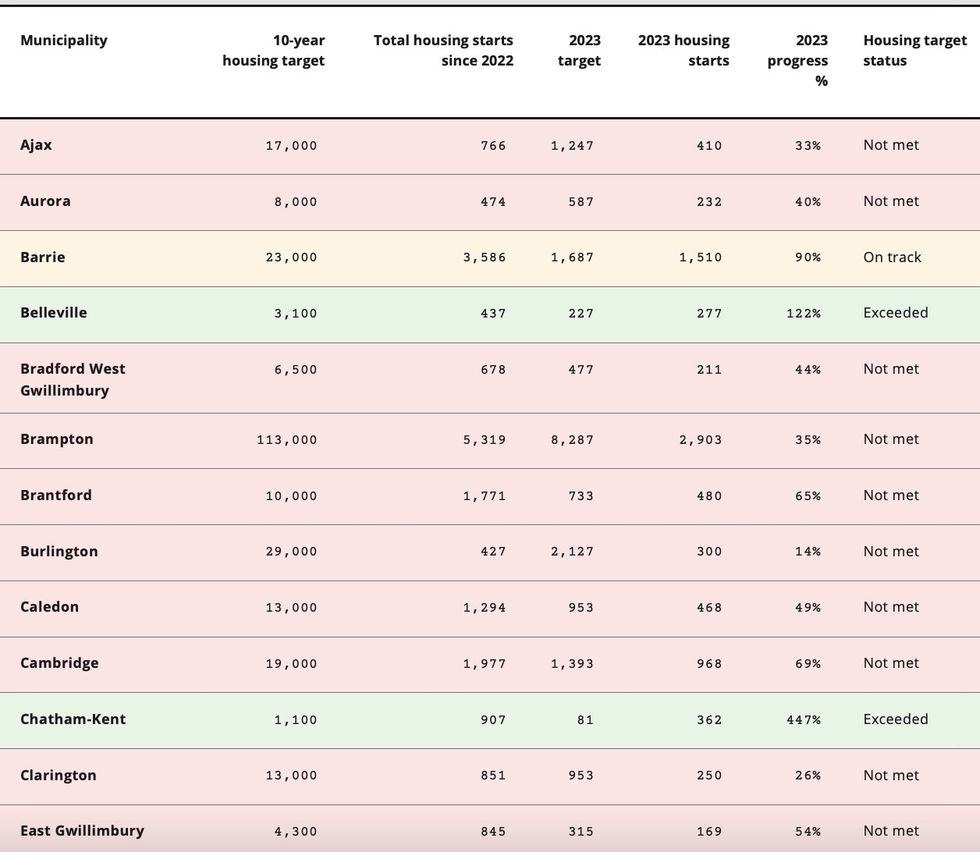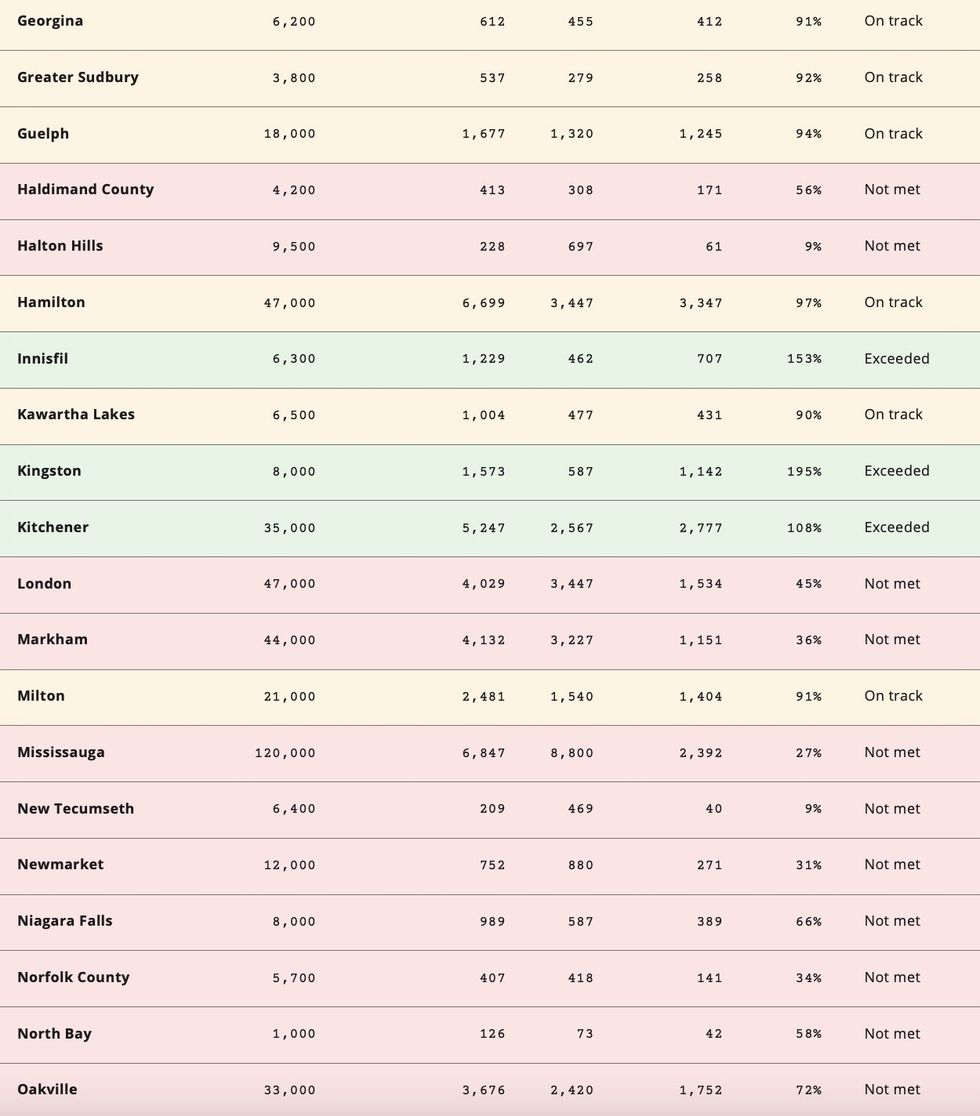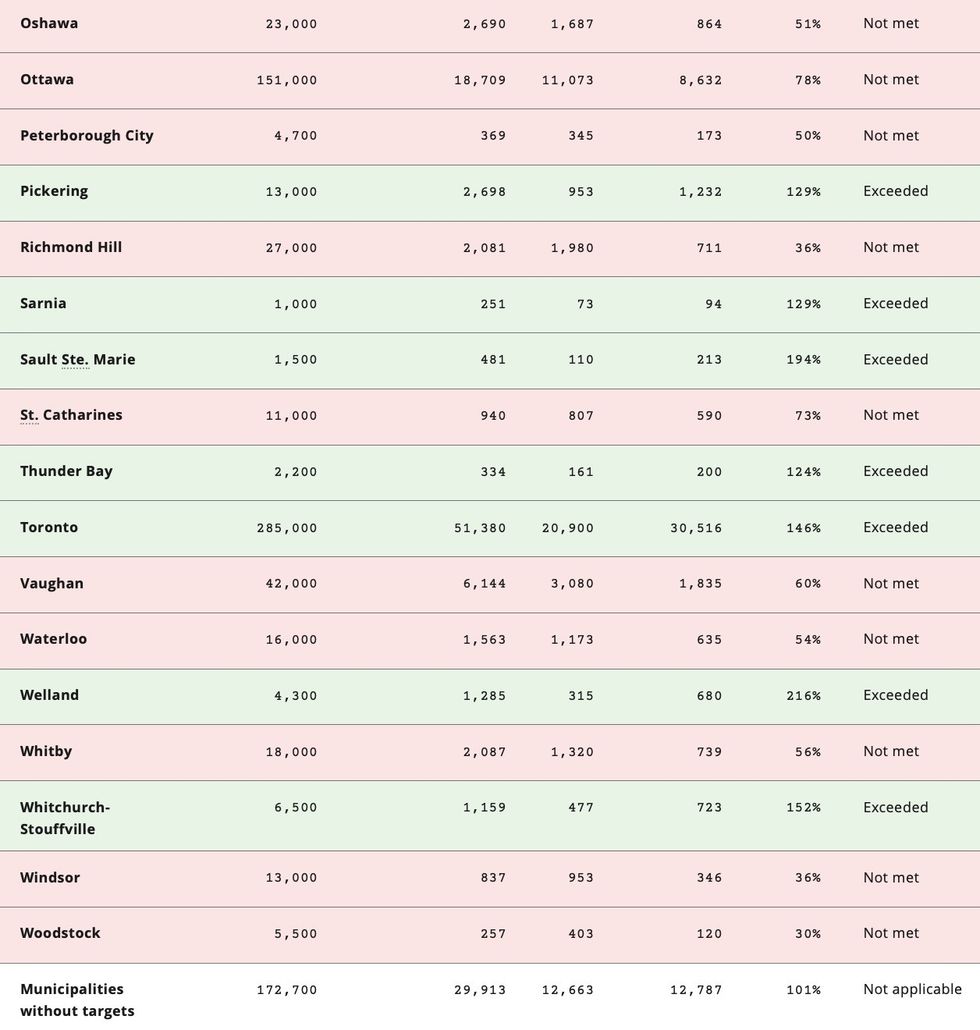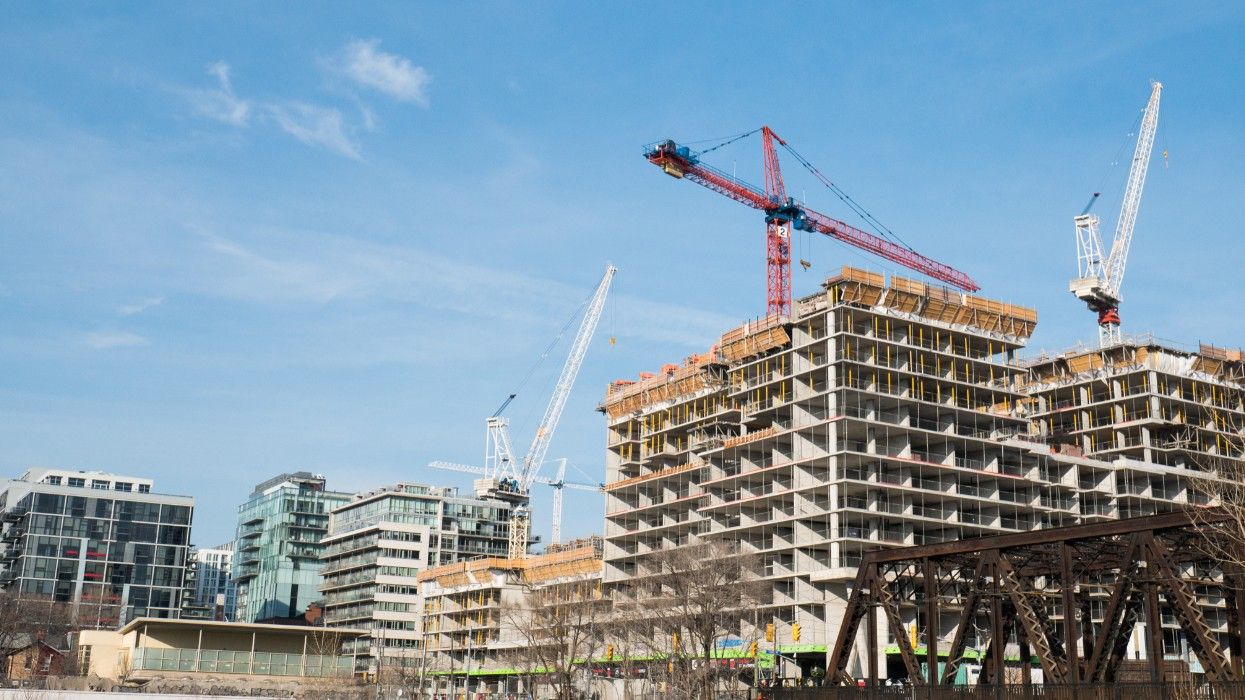The majority of Ontario municipalities did not meet their provincially imposed housing targets in 2023, and thus will not be receiving funding from the Ford government.
As part of the Province’s goal of building 1.5 million homes by 2031, 50 large and fast-growing municipalities have been assigned housing targets, which range from 1,000 in North Bay and Sarnia, to 285,000 in Toronto.
To incentivize supply, cities that meet at least 80% of their annual target will be rewarded through the Building Faster Fund (BFF), a three-year, $1.2B program. Those that exceed 80% will get a bonus, but those that don’t will have their funding redistributed to their neighbours.
In 2023, only 12 cities hit 100% of their annual housing target.
With the exception of the City of Toronto, which managed 30,516 starts, or 146% of its 2023 goal, those that did surpass their target had relatively small numbers to contend with — eight cities reported fewer than 750 starts for the year. On a percentage-basis, Chatham-Kent led the dozen with 447% of its annual housing goal achieved, which equates to 362 starts.
Another seven municipalities achieved 80% of their goal, including Barrie, Guelph, and Hamilton, making them eligible for BFF funding. But the remaining 31 will not get a dime.
While some cities put in a concerted effort, like Oakville and Ottawa, which reached 72% and 78% of their annual goal, respectively, others struggled with their starts.
New Tecumseh and Halton Hills both achieved just 9% of their annual housing goal, with the former getting shovels in the ground on 40 new homes and the latter on 61 units. Burlington’s 300 starts amount to 14% of its annual target; its 10-year goal is 29,000 homes.
Ajax, Brampton, Markham, Mississauga, and Richmond Hill achieved less than 40% of their annual target; London reached 45%, and Vaughan managed 60% of its annual goal.
In fact, of the 27 cities with a 10-year target of 10,000 or more homes, 20 did not hit at least 80% of their annual goal in 2023.



Government of Ontario
Province-wide, there were approximately 90,000 housing starts in 2023. In order to achieve the 2031 goal, 150,000 starts per year are needed.
Since 2022, when the 10-year target was introduced, Ontario has seen roughly 185,000 starts. It has not surpassed 100,000 annual starts in over 30 years.
In a recent report on the province’s housing supply progress, the Ontario Real Estate Association noted that 1.5 million homes may no longer be enough given the “rapidly increasing” population. Without “dramatic steps” to boost the annual number of starts, "Ontario’s economic and social future are at stake.”





















